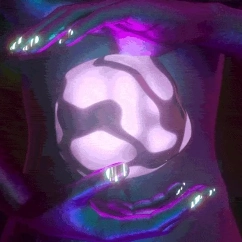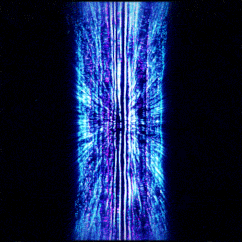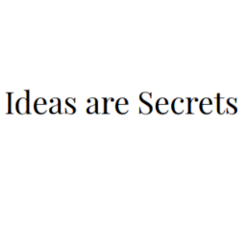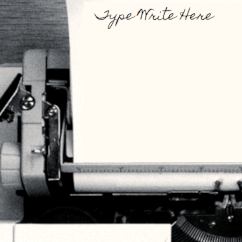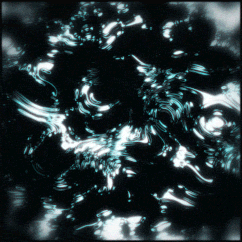Emotional Alchemy
22 May 2021 -
Emotional alchemy is an active experience that involves the changing or perhaps, the transmutation of one’s own feelings. This can lead to an entirely different life experience, in which the phrase, ‘never a dull moment’ becomes an increasingly exciting reality. For the experienced alchemist, life shifts to a chain of reliefs and joys, in some cases where there is hardly time to prepare for the next bombshell of bliss or satisfaction.
I often use the term ‘Shadow Work’ to refer to a part of this practice, as the parable of riding off into the darkness of night, only to return as the prodigal son coming home to his kingdom, having been restored with more light than before is a drama commonly understood in Carl Jung’s model of the Shadow.
Whether we use emotional alchemy or not, we all are subjected to this experience of darkness to light in life, regardless of our desire to participate.
You should not expect to understand everything I describe here, as the feeling-based reality and operations within it do not translate well into the spoken word.
My effort here is to write a universal abstract on the topic. This reading may seem nonlinear, as it is, emotional alchemy is not linear. There are many entrances from which to start understanding it.
What I will describe as emotional alchemy is not a formulaic process, such as physical alchemy, this is an evolving process of active and changing refinement, easier and more rewarding as the person becomes more equipped and aware of their own experience, such as the ability to catch and recognize antiquated thought patterns.
There is also no question that this experience will always be relative to the individual, one person’s methodology and understanding of this will be vastly different than another’s. One person’s tool will likely not be accessible to another. A person with a background of mindfulness will also likely have a more effective experience than the person who is currently consumed by and overwhelmed with thought.
Emotional alchemy at its core starts with observing emotions that are present. Most of these recurring emotions are painful, so a core part of this process is a willingness to embrace some level of pain or discomfort.
In my personal experience, the difference between facing emotional pain and running from that emotional pain is negligible. My experience is that facing an emotion is about 10% more painful than living with it. It is in the resolution of feeling, or changing of feeling, or releasing of feeling that is rewarding to many degrees, so it could be said that the reason to pursue emotional alchemy is that it is a continually rewarding experience, where many treasures can be found in one’s own soul.
This process of facing emotion is subtly different from being consumed by emotion, in the former, one retains an intention and focus to grow, change, and heal, in the latter, one is desiring to explore the depth of that feeling and drown in it. It takes time to begin to recognize the difference.
Facing emotion is only possible from a positive and self-supportive headspace, most effective when operating from the role of mentally acting as an ‘inner consoler’, one who has an intention to give grace and compassion to oneself and console their own troubled feelings.
When this topic is thought up, thoughts usually arise that, “I don’t have an inner world like that” or “I’m not that deep” or “That’s too complicated for me”.
I find these thoughts to be untrue when explored, as, at its core, this process is nothing more than having an intention and being a being that has emotions, both of which would describe all people. Like many activities, this process is as easy as attempting to try, again and again. Our greatest resource in this area is time, with which at every moment regardless of what we are doing, we are experiencing emotion, and have a chance to try to work with it.
For those that have not focused on emotions in many years, it becomes more difficult to identify one’s feelings as they become unrecognizable as feelings. This is the case in which one feels that they “feel nothing”, or they “don’t feel anything”, or they feel “an absence of feeling”, or even “the absence of an absence of feeling”, all of which are deep spaces of actual feelings that can be worked with once identified as such.
The most difficult subject of course is the individual who has become obsessed with feeling great at all times, the one who will feel the most despair when they crash. This person is just as much feeling great as they are running as far as they can from all negative and painful reminders of feelings to the point of avoidance of themselves and others in their lives in order to escape the darkness of night.
–-
The way emotions are approached varies circumstantially. There are so many methods of this alchemy, that it is likely you already actively use at least one in your daily life, and will naturally pick up more as you get older. It could be said then that what I am referring to are methods of advanced emotional alchemy. The introduction to these methods is simply that you do not know which ones will work for you at this time in your life unless you try them, just as in physical alchemy, this is a process of experimentation and exploration. Think of this as a recipe cookbook, you can try to cook some, or add some recipes to your existing concoctions.
–-
A methodology as follows,
1 Asking questions.
Asking yourself questions about what you are feeling, how you are feeling, why you are feeling, is a way to dig into the roots of emotion. In this process, you are removing your existing conclusions and reasons for why you feel this way. You are abandoning what you already have concluded, which is often what you have believed for many years. A second line of questioning is often the next step, asking, “What am I missing?”, “What am I not seeing here?”, “What is a different way to interpret what I am experiencing?”
2 Identifying emotional desires and needs.
It is usually the case that a persistent negative emotion is tied to a core need that has long since gone unmet. You may already be familiar with some of these needs while unaware of how to access them or resolve them. Usually underneath “surface emotions” is a need to be seen and heard, a need to be loved, or a need to be connected, amongst others.
2.1 Identification of core needs
When you feel an emotion, you can often ask, “When have I felt this before?”. If you feel you are in a safe space, it is often that memory will surface. Unlike therapy that seeks to identify memories and resolve them in an endless rabbit hole that will certainly never end, we’re simply trying to identify the need here. Oftentimes, a memory surfacing is enough to reveal what kind of emotion has been covered up.
Have you ever cried and felt horribly toxic and disgusting afterward? We tend to avoid wanting to feel this way. I believe it works something like this. We once had an unmet need, then we formed a conclusion, a belief of why that need went unmet, and that belief covered over a space inside us, a space in which that need was meant to be filled with wonderful emotion. That belief became a shield around that space, and inside that space, a dark space without light grew the bitterness of lack. As we want to view ourselves in a positive standing and capable way, we unknowingly must avoid feeling whatever toxic acid might have cultivated in these darker places. We do not want to be sickly, needy, desperate, lacking creatures.
The beliefs that grow, or more accurately, the lies that grow, are usually about ourselves or others, such as, “People don’t like me”, or “I am this way”.
2.2 Resolution of needs.
There is almost no need to try to dissect and untangle a web of beliefs, as we can accurately assume that whatever beliefs are surrounding these emotions, are simply, lies. There is no need to sort through them and pick out good lies from bad. We can assume our beliefs about our emotions are untrue. We can skip right over a field of thoughts.
A conscious willingness to accept that it is time to let this go, or that you are now ready to face this emotion may be required. It is likely that you will feel and believe that for some reason, you do not deserve and are not worthy of having this need met. If from here you have identified an unmet need, you can seek to resolve it.
You can ask yourself, “What would it feel like if I had this need met?”. So for example, if the need was to be loved and accepted, what would it feel like if you were loved and accepted?
If you are able to imagine this and continue focusing on how it feels to have this need met, you may be able to feel the emotional need you were seeking.
Healing wounds of this kind are known to feel like healing water is being poured onto painful scars, burning them until they are erased and filling that space with something brand new.
If you are unable to feel this need met, you can take a different approach. You can think about someone you care about, or even once cared about, a family member or close friend, someone that you wish only the best for and want them to be happy. Now imagine that they feel the way you feel or they have this unmet need that you have. If you are attempting this right now, spend some time focusing on this, do not rush ahead.
How do you feel about that? If you would not want them to suffer in this way, how cruel are you being to yourself to allow yourself to suffer in this way?
Now, you can take the feelings you have toward this person, your desire for them to know how okay they are, how you want to be there for them in this, how you wish that they knew that you loved them, how you wish they felt, and look back at yourself. How could you not love yourself in this way?
Focus on meeting this desired emotional need.
If this still does not work and you are willing to continue working on this, continue breathing slowly and just focus on a wish for yourself for some peace, grace, safety, rest. The emotional space you are looking to resolve may open, or it may need more time to resolve.
2.3 Identification and resolution of desires.
Many negative emotions can grow in us when we are not careful and deeply desire to have what others have that we do not. In this lacking space grows jealousy, contempt, and other painful emotions.
Fortunately, these desires are easier to identify than emotional needs. Unfortunately, these tend to be more active emotions, and we may have actively grown them from small seeds to large spaces of deep and painful emotion by now.
To start the resolution process, you can acknowledge that there simply is no such thing as lack. These again are beliefs of lack, an illusion of lack that is a lie. When you see in others what you desire, the reason why you desire it is because it is you. You are desiring to be you. You are desiring something inside yourself that wishes to be seen outside yourself.
Because of this, you can look inside yourself and see that inside you is what you desire outside. It takes time, but you can learn to be accepting of this inside yourself and be seen for being this. In other words, the verification and evidence that you are this, is that you can see this inside of you.
Being grateful and happy for others having gifts and blessing also helps dissolve some of what is in these emotional spaces, but this article is not to teach spiritual lessons.
2.4 Cultivating
You will find that you can resolve some emotions and not others. You will find that you can access emotions sometimes and be unable to open up other times.
This is, again, the process of emotional alchemy. This is emotional work, or, an emotional art, a practice of refinement. It takes time, care, delicacy, and skill to create a refined work, in the same way as your soul. Keep this in mind. The level at which you are able to access emotions is directly related to how safe you feel. Taking care of your self, your mind, your body, (even your spirit), are all elements that factor into your emotional access. Just as the right conditions of temperature and climate are required for certain works, the atmosphere that you work in does matter. Proving to yourself that you do care about yourself by taking actions that show you care about yourself will over time increase the amount of trust you have that you can be trusted to take care of yourself. The more you trust yourself, the more willing you will be to open up to vulnerable places inside of you.
Patience, self-compassion, and grace are necessary to cut yourself some slack and learn how to be easier and more nurturing to yourself. This can be difficult in a world that encourages you to do the opposite, teaching you incorrectly that productivity comes before peace.
2.5 Abilities
What you can expect to eventually experience as you turn your focus onto your heart in this way over time, is that you gain an ability that was not accessible before. Becoming more mindful in this way, - which pairs well with mindfulness and focused attention on the breath -, is you will become aware of yourself. You will have access to a mental process that was unavailable before, one that can question your thoughts, question your heart, question your actions, question your desires all from the present, rather than as an afterthought to be reflected on after the fact. You begin to wake up from the dream. Being awake in this way grants you the ability to change, to shift your focuses, to reinterpret your life, to no longer act out of routine, or be enslaved by fears and an overstimulated mind.
Having access to this ability can grant you even more trust in yourself, as you can trust yourself to be able to consciously deal with whatever comes in your life. This trust will again increase your sense of safety and allow more emotion to feel safe enough to rise to the surface.
A second ability is gained as well. You may already have access to this if you are empathetic. In listening to your heart, and becoming aware of emotions inside you, you will also become aware of an emotional reality in your world. You will begin to develop a second sight from which the world will teach and show you many insights, revelations, and wisdom in your interactions every day. You will notice that these insights were perhaps always there, but you were not listening to them, your focus was too far away.
Advanced Emotional Alchemy
Keep in mind that not all emotional states are inherently bad, even if undesirable, as it is known that for example, the pain of grief is close to love. Certain emotions like depression can at times even be feelings about the world itself. Keep in mind that we cannot always change the way we feel or what we experience, but we can always consciously control how we respond and interpret what we are experiencing. Being overwhelmed is of course, overwhelming. But you can actually change how you experience being overwhelmed, where your focus is. This is much like the phrase, “It’s okay to not be okay.”
Part of what you are learning to do is not simply mind games. You are learning to allow your deeper heart to lead and the better more intuitive thoughts that can arise from focusing on it to lead you, and all that is required is that allowing. That intention of allowing your heart to open to start. Then, allowing something else into the space. To do this, you have to surrender a bit of control, to allow what is “outside of you”, outside of your comprehension and mental understanding, your spirit, to come into your heart to heal it. You may not always have the ability to surrender your control, your willpower. Sometimes this can only be when your mind and body are weak and tired and low on their usual stubbornness and strength, or when pride is severely injured.
To begin the process of injecting in new emotion, what you can control here is again your focus and intentions. After opening to a painful emotion, you direct your intention to focus on what is needed there as said earlier, or you introduce a foreign element. You set your intention to connecting to safety, or warmth, or light, or love, or kindness, or grace, or God, or Christ, or your divinity, or angels, or loved ones, or whatever unknown love might exist somewhere out there that wants to help you.
You set your intention on it, you ask for it, you wait on it, you relax with a small measure of faith and trust, you be patient on it while focusing on your heart, and when you start to feel your heart opening, you breathe into it and let go and release your fears and resistance and let it penetrate.
As you become more familiar with better feelings, you can start to practice focusing on those better feelings and replacing the spaces in which negative ones reside. Just experiment with it, you have every moment for the rest of your entire life to practice.
Now, what about raw pain? How do we transmute just pain? We don’t. Like many emotions we open up to it to allow it to dissolve quickly, to find that underneath that pain is the warmth of love. It’s like opening up a box of food and expecting birds to come down from the sky and take the food. You open it up, and allow it to work through its natural process and transform itself into love and leave. Pain is a lead that transmutes into gold.
Keep in mind that fear is not an emotion to be transmuted. Fear is what will attempt to turn your heart cold to keep you from accessing your emotions. Its partner, doubt, is skilled at convincing you that you ought to not even try. Fear loses its hold in the presence of trust, and where is fear to be found when you feel safe and loved?
With love always, James Bytes 2021








































































































































































